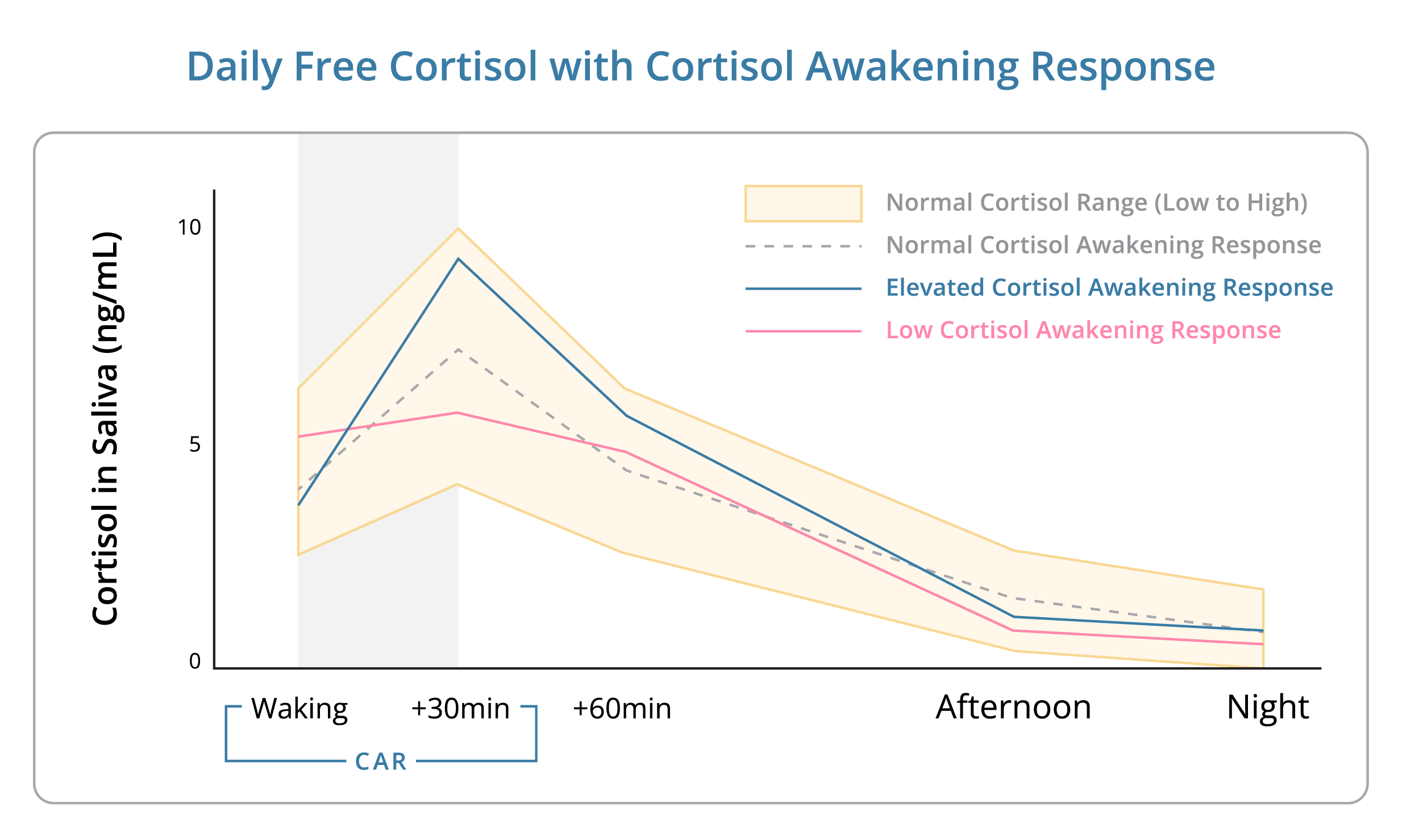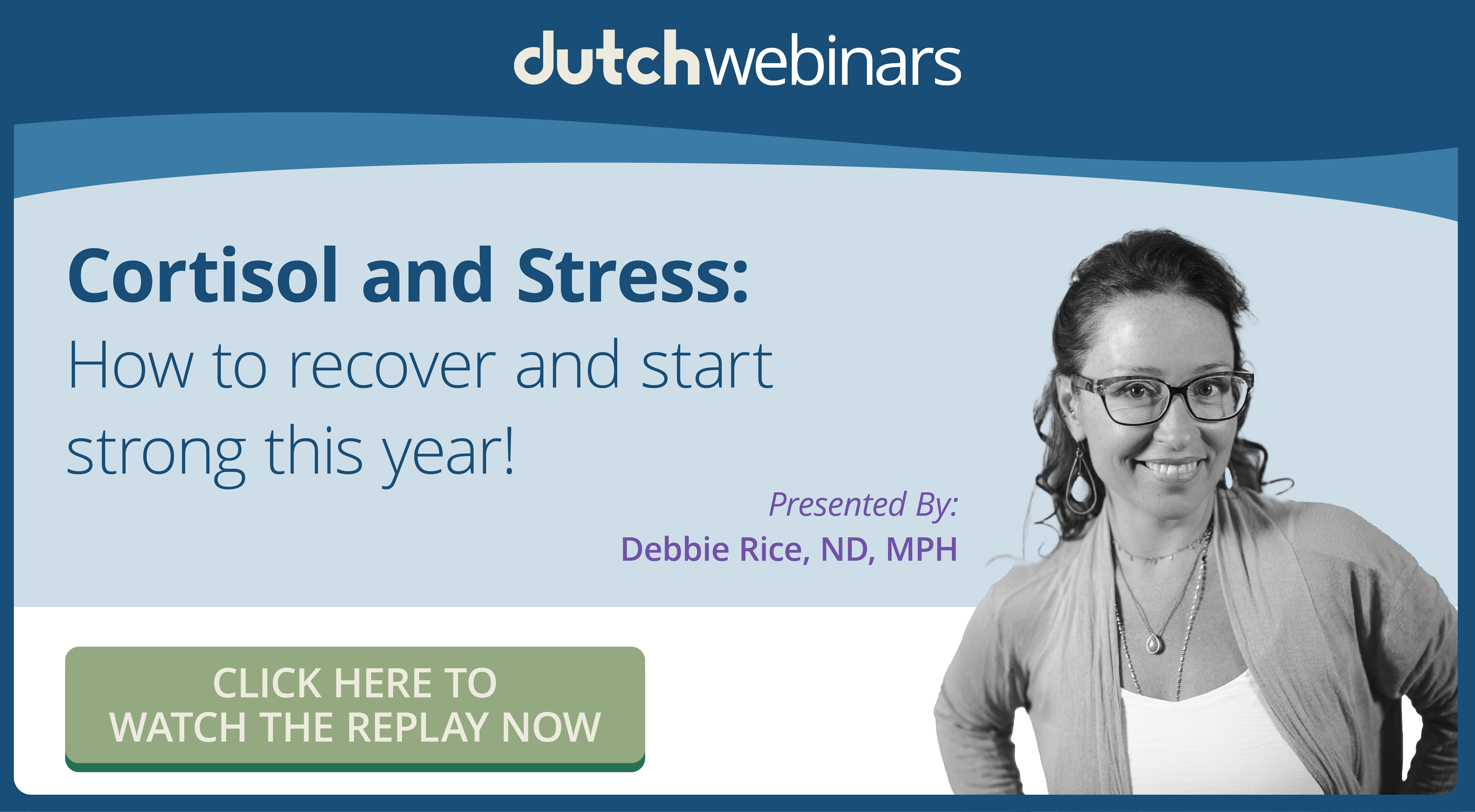Recovering from Stress After the Holidays
by Debbie Rice, ND, MPH
The holidays are joyous, and they may also be filled with stressful events: family get-togethers, cooking for large groups, company parties, travel, and the societal pressures of go-go-going.
Whatever the circumstances it seems most people need to restart or reset themselves at the new year. Many become swept up the non-structure of the holiday break and use this time to relax more and break away from daily routines.

Believe it or not, this lack of routine and unpredictability of the season can negatively impact how your body deals with and recovers from stress. When you think of stress, you may also think of the hormone that manages your stress response: cortisol.
Cortisol Overview
What is Cortisol? It is a hormone released from the two adrenal glands, which are located on top of the kidneys. Cortisol helps your body stay safe, as well as put one foot in front of the other daily. Cortisol enables you to fight, freeze, or flight.
Your brain sends signals to the adrenal glands that dictate how they will react or respond to stress. Because the stress response actually starts in the brain, it’s referred to as the HPA (hypothalamic-pituitary-adrenal) axis. The HPA axis relies on sensitive signaling from sunlight that awakens the cortisol response in the morning.
Cortisol is a daytime hormone. Once your brain “sees” sunlight, it initiates the cortisol awakening response (CAR). As the day goes on cortisol levels drop. Once cortisol drops, it signals melatonin for night-time (sleep) support. Melatonin is a night-time hormone. Cortisol and melatonin create the circadian rhythm, which is your daytime/nighttime rhythm.

The circadian rhythm has been shown to be predictive of disease states. This means that when your circadian rhythm does not follow the expected pattern, you may be at risk for certain diseases (discussed below).
In moments of acute stress cortisol increases to activate the stress response. If stress is always high, or always present, this becomes a chronic reaction that tends to compromise the amount of cortisol we have available to sustain the stress response. Effectively lowering levels of cortisol and reducing your capacity to maintain a stress response.
Cortisol and the Short-Term Stress Response
Is cortisol good or bad? Cortisol gets a reputation as being bad. But cortisol is not the culprit. Your decisions and responses to stressors creates your cortisol situation.
Cortisol affects multiple systems in the body.
When you experience an acute or short-term stress response, your body responds by:
- Decreasing inflammation
- Increasing energy to fight, deal with stress
- Increasing focus
- Increasing blood pressure (vasoconstriction of blood vessels)
- Increasing heart rate and blood flow to muscles
- Decreasing digestive effort
- Decreasing sex hormone response
- Decreasing immune response
The culmination of all these actions allows you to think fast, move quickly, and run or fight what your body senses as a threat. This is all helpful in the short-term, or until the stressor passes. And with the expectation that your systems will return to “normal” shortly.

Long-Term Stress Response
When you have a long-term stress response, the following can occur:
- Insulin dysregulation and blood sugar irregularities/dysglycemia (diabetes)
- Weight gain, specifically around the middle
- Immune suppression, immune dysregulation (easier to get sick, harder to get better)
- Chronic fatigue
- Gastrointestinal issues because of parasympathetic nervous system suppression (constipation, diarrhea, stomach upset, bloating, nausea)
- Cardiovascular concerns like blood vessel constriction, over-compensation of the cardiovascular system resulting in high blood pressure
- Sex hormone imbalances (infertility, irregular periods, heavy periods, low libido/sex drive)
Your body was not intended to remain in a stress response, or chronic stress state.
These disease states are increased in developed societies due to the strains and demands of living situations and societal expectations. Each person’s response to stress may be different, which is why some people can appear to handle more stress than another person. This may be dependent not just on how much stress a person has, but also the cumulative effect of stress, and the ways a person manages their stress.
Support Adrenal Glands and the Stress Response
Breathwork and meditation help modulate the stress response. Adjusting the stress response improves your capacity to endure more stress with improved resiliency – meaning your body will not be as compromised from stress in the future.
Your adrenal glands do best with predictable routines including:
- Routine sleep patterns – going to bed and waking around the same time every day
- Stable blood sugar levels – no major spikes or drops in blood sugar through the day
- Consistent and purposeful movement – exercise, body movement
- Hydration
Some people can support their adrenal glands further with social interaction, friends, hugs, touch, and animal companions.
Evaluate Your Stress Response with DUTCH
You can evaluate your cortisol response through salivary testing or the more comprehensive DUTCH Test to see the cortisol awakening response and understand how cortisol rises and falls throughout the day. Understanding your daily cortisol pattern and circadian rhythm offer more information for better treatment guidelines.
Don’t guess—test. Cortisol testing can help inform appropriate and effective treatment.



